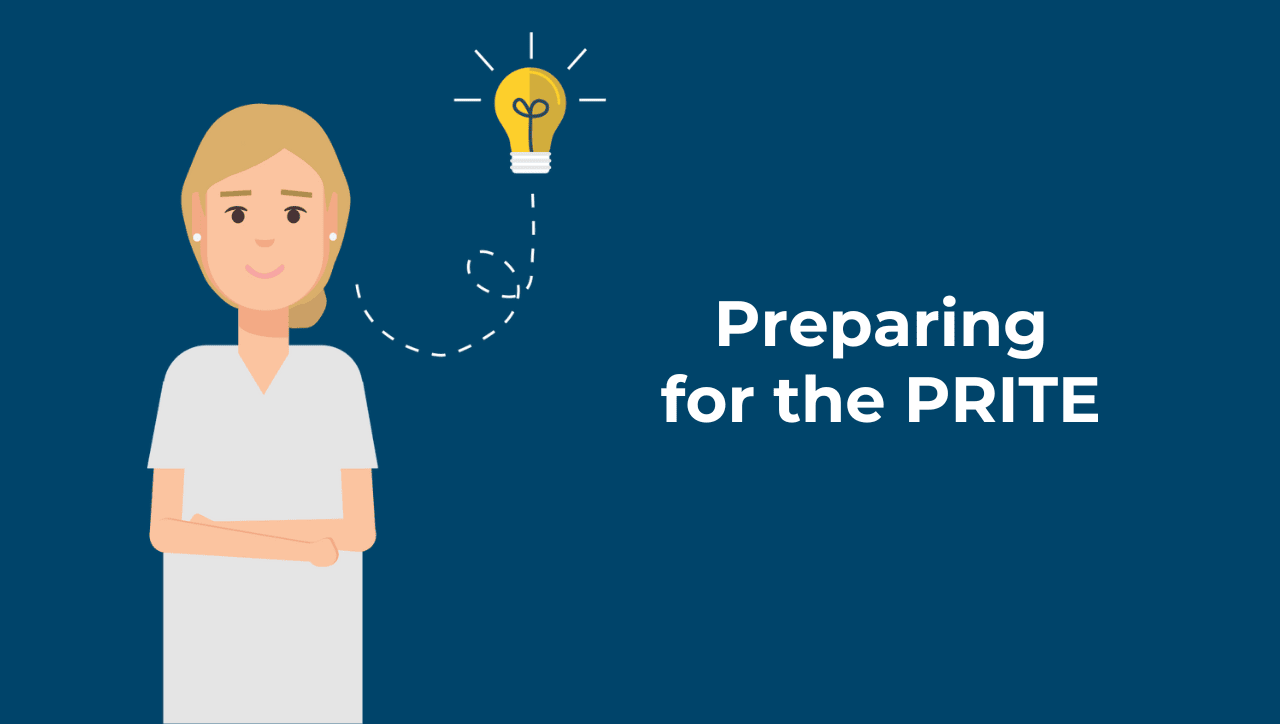Free Psychiatry Board Exam Sample Questions
See why TrueLearn is a trusted resource for thousands of medical students and residents. We understand that it’s all about the content. That’s why we have high-yield psychiatry board practice questions written and screened by high-performing physician authors that are updated on a regular basis to ensure our SmartBanks stay up-to-date with ABPN Certification and PRITE blueprint changes. See what we mean with the below free psychiatry board exam sample question.
Your First Free Psychiatry Sample Question
A 17-year-old girl presents to the clinic for followup. She details that since starting college she has had to find her new place within social groups via developing new friends, cliques, and making a name for herself at this new school. At the same time, she has pursued a relationship with another individual at college and has developed a sense of fidelity toward him. According to Eriksonian life cycle development, the patient is MOST likely in which of the following stages?
- A. Autonomy vs shame and doubt
- B. Identity vs role confusion
- C. Integrity vs despair
- D. Intimacy vs isolation
- E. Trust vs mistrust
Answer and Explanations
Erik Erikson evaluated that children progress through 8 separate phases of ego development with respect to physical, mental, sexual, and instinctual maturations. Eriksonian life cycle stages include trust vs mistrust, autonomy vs shame and doubt, initiative vs guilt, industry vs inferiority, identity vs role confusion, intimacy vs isolation, generativity vs stagnation, and integrity vs despair.
In particular, identity vs role confusion is the fifth stage of life cycle development during approximately 13-20 years of age. Physical maturation during this time includes onset of puberty. During this phase, individuals become increasingly concerned about how they appear to those around them, joining cliques, identifying social roles, and developing individual identity. Furthermore, falling in love and developing virtues of fidelity are primary in this stage. Maladaptive behaviors and failures within this stage may result in gender identity disorders, borderline psychosis, or delinquent behaviors.
Did you get it right? The correct answer is: B
| Psychosocial Stage | Approx age | Assoc virtue | Assoc Pathology |
| Trust v. mistrust | birth to 18 months | Hope | Psychosis, addiction, depression |
| Autonomy v. shame | 18 mo – 3 years | Will | Paranoia, obsessions, compulsions, impulsivity |
| Initiatives v. guilt | 3 years to 5 years | Purpose | Conversion disorder, phobia, psychosomatic disorder, inhibition |
| Industry v. inferiority | 5 years to 13 years | Competence | Creative inhibition, inertia |
| Identity v. role confusion | 13 years to 20 years | Fidelity | Delinquent behaviors, gender identity issues, borderline personality disorder |
| Intimacy v. isolation | 20 years to 40 years | Love | Schizoid personality disorder, distantiation |
| Generativity v. stagnation | 40 years to 60 years | Care | Mid-life crisis, premature invalidism |
| Integrity v. despair | over 60 years old | Wisdom | Extreme alienation, despair |
- Answer A: Erikson’s autonomy vs shame and doubt maintains a stage of development from 18 months to 3 years of age whereby children seek out free will and self-expression, with necessary regulation and control by parental figures in appropriate ratios to allow for growth while at the same time protecting from harm.
- Answer C: Erikson’s integrity vs despair is the final stage of life development that encompasses feelings of wisdom, maturation, and self-sufficiency with life’s impending end.
- Answer D: Erikson’s intimacy vs isolation focuses on development of love and closely intimate relationships, which if are stunted, may lead to withdrawing and distancing of individuals from the world around them.
- Answer E: Erikson’s trust vs mistrust focuses on development of trust and hope within children as they reach out to their caregivers to meet needs from birth up until 18 months of age.
Bottom Line: Erikson’s identity vs role confusion, occurring between ages 13 – 20 yo, encompasses a developmental stage of analyzing social roles, as well as experiencing feelings of love and prizing virtues of fidelity among relationships.
For more information, see:
Kaplan and Sadock’s Synopsis of Psychiatry. Eleventh Edition. Pages 170-171, 1282-1283.
Get More Free Psychiatry Sample Questions
Ready for more practice questions? Sign up for a free trial of our Psychiatry In-Training SmartBank.


